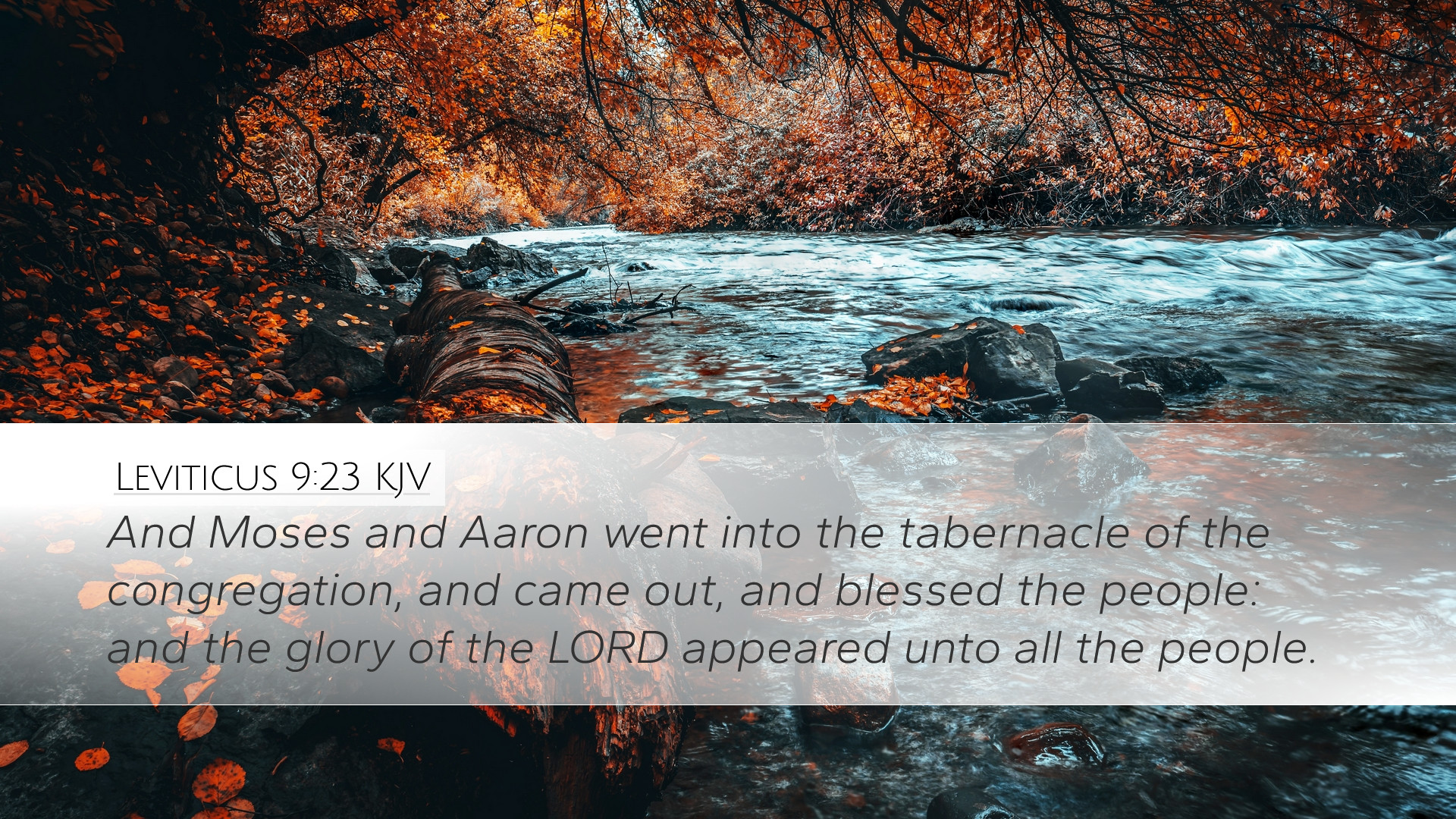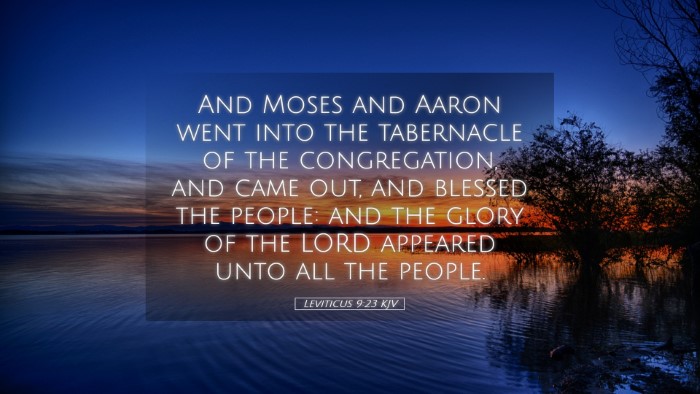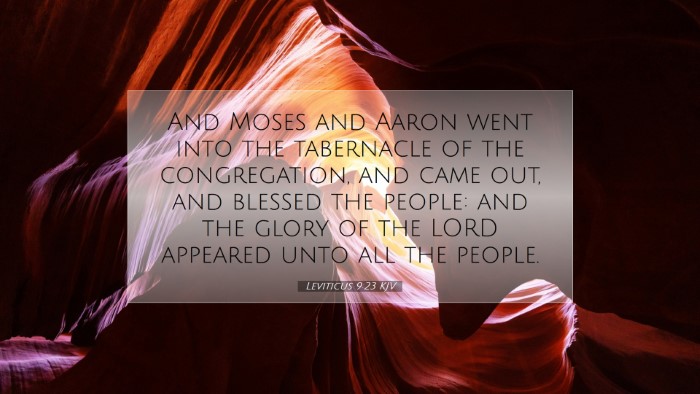Commentary on Leviticus 9:23
Verse Text: "And Moses and Aaron went into the tabernacle of the congregation, and came out, and blessed the people: and the glory of the LORD appeared unto all the people."
Introduction
Leviticus 9:23 marks a pivotal moment in the inauguration of the priesthood and the establishment of the sacrificial system. This verse encapsulates the culmination of the rituals performed in the service of God, highlighting the divine approval of these acts through the manifestation of His glory. This commentary draws from various public domain sources, providing a comprehensive understanding suitable for pastors, students, theologians, and scholars.
Contextual Background
The book of Leviticus serves as a manual for the priests and the Israelites, detailing the sacrificial and ceremonial laws established by God through Moses. Following the consecration of Aaron and his sons (Leviticus 8), there is a narrative of the first offerings they made (Leviticus 9). This denotes not only a significant step in the spiritual life of Israel but also signifies the beginning of a relationship between God and His people through worship.
Exegesis of the Verse
Moses and Aaron's Actions
In this verse, both Moses and Aaron enter the tabernacle—a sacred space designated for communion with God. Matthew Henry notes that this entrance signifies the role of the high priest (Aaron) being established with Moses as his mentor and leader. Their coming out to bless the people reflects the interconnectedness of worship and communal life, emphasizing that priestly duties are not only about rituals but also about interceding for the people.
The Blessing
The act of blessing the people is significant. It illustrates the transfer of God's favor from the divine to the congregation. Albert Barnes comments that blessings pronounced in the name of God convey His grace and peace to the people, reinforcing their identity as a chosen nation. The blessing also serves as an encouragement for the people, reminding them of the necessity of obedience and the joyous relationship with God.
Divine Glory Manifested
The latter part of the verse indicates that "the glory of the LORD appeared unto all the people." Adam Clarke elaborates on the manifestation of divine glory, emphasizing its significance as a confirmation of God’s approval of the offerings and the newly established priesthood. This theophany was not only a pivotal moment for the worshippers but also served to instill reverence and awe within the congregation. The presence of God's glory reassures the people of His abiding presence among them.
Theological Implications
The Nature of Worship
This pivotal moment illustrates the central role of worship in the life of God's people. Through the blessings and the visible evidence of His glory, God communicates the importance of worship characterized by sincerity and purity. The public acknowledgment of God’s presence invites all to respond to Him with reverence and dedication.
The Role of Mediators
Moses and Aaron’s actions highlight the essential role of mediators in the relationship between God and humanity. As New Testament believers, we see a foreshadowing of Christ—the ultimate High Priest—who intercedes for humanity. The blessings of the priesthood in the Old Testament are paralleled by the blessings Christians receive through Christ’s redemptive work.
Corporate Communion with God
The communal aspect of this event underlines the importance of collective worship. It illustrates that while individual faith is essential, it is within the community that God’s glory is profoundly experienced. The shared blessing is a reminder that the experiences of God’s presence are meant to be collectively cherished and acknowledged.
Practical Applications
Encouraging Worship Leaders
Pastors and worship leaders can draw from this passage to understand the weight of their role in leading worship. Just as Moses and Aaron blessed the people after entering the presence of God, contemporary worship leaders are called to facilitate encounters with the Divine and to convey blessings that reflect God’s character and present love.
Fostering Community
This verse prompts congregations to engage in collective worship. As believers gather, it is vital to recognize and celebrate the presence of God among them, creating an atmosphere conducive to experiencing divine glory. Encouraging communal prayers and blessings fosters a spirit of unity and focus on God.
Living in God’s Presence
The manifestation of God's glory challenges individuals to cultivate a lifestyle that recognizes and honors the presence of God. Believers are encouraged to actively seek communion with Him, understanding that worship extends beyond the church building into everyday life.
Conclusion
Leviticus 9:23 serves as a profound reminder of the privilege and responsibility associated with the worship of God. It highlights the role of mediators in the divine-human relationship, the importance of communal gatherings, and the ongoing call for believers to seek God's manifest presence in their lives. As we reflect on this verse, may it stir a deeper longing for God’s glory to be realized in our worship and communal experiences.


